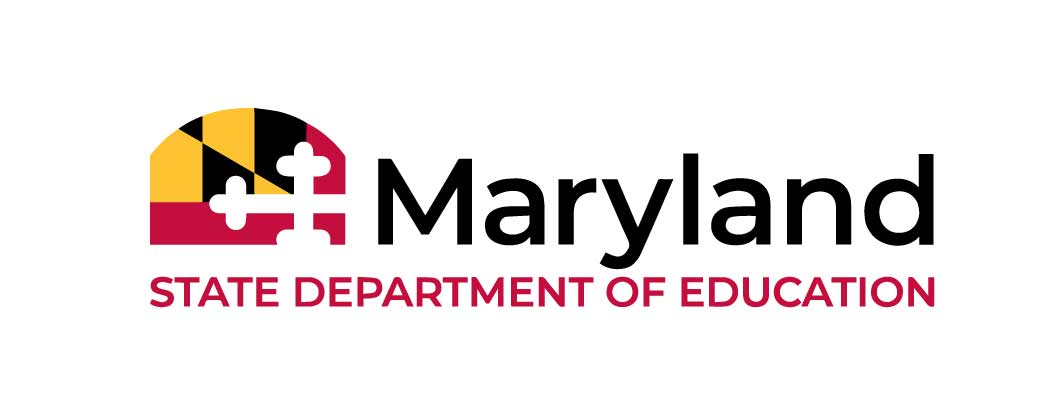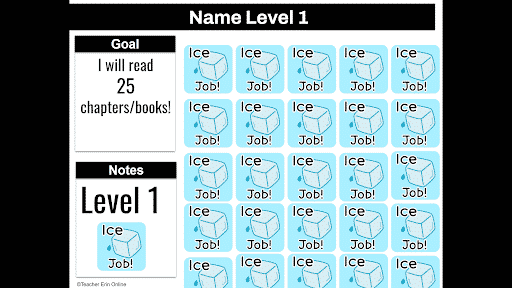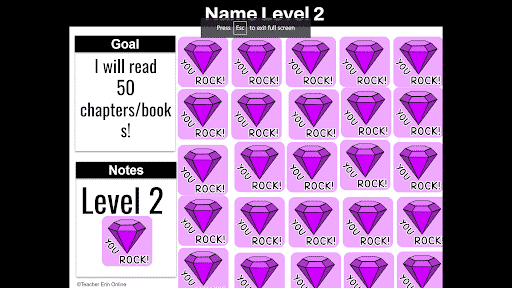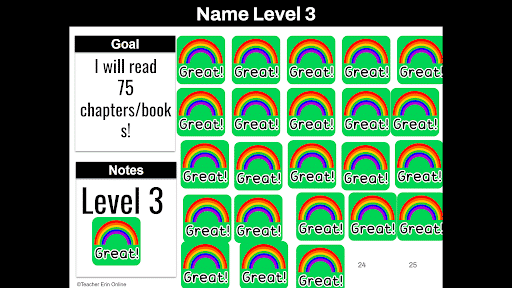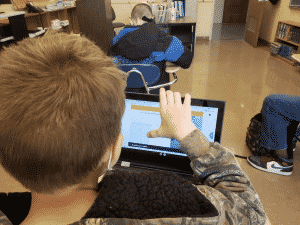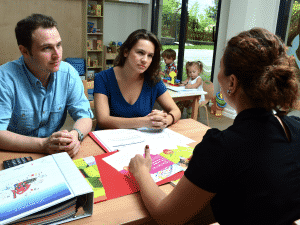Research in Practice- Evidence-Based Practice: Reading Contest

Spotlight – Stories from the Field
Kate Power, Reading Specialist, The Maryland School for the Blind
Ms. Power’s Challenge: How can I create a virtual, literacy-rich environment that fosters student agency, independence, and enjoyment around reading?
Under normal circumstances, our team of elementary teachers host a one month reading challenge each winter quarter. Our students set goals, loaded up on “just right” books, and kept track of their reading with tactile sticker charts. The end of the contest was always celebrated with an awards ceremony!
During the pandemic, I wanted to recreate some of the excitement this activity always generates for our students with one of my small reading groups. I purchased virtual charts and virtual stickers from TpT and kept the charts in my Google classroom. The students could choose to read either hard copy print or Braille books or read books online in Bookshare. At each level of achievement students were given a small prize or certificate. All five students in the group made it to Level 3: reading 75 books or book chapters!
Implementation Plan
Time: Students had 30 minutes, four times a week to read independently and also read voluntarily outside of school. A paraprofessional and I would do daily check-ins to update charts, which took 5-10 minutes.
Materials/Resources: Students need physical and ebooks in their preferred media. Charts and stickers were needed; teachers used Google classroom to maintain charts.
Steps:
- Prepare virtual charts and stickers and post in Google Classroom.
- Announce reading challenge for students!
- Make sure your students have enough books to read.
- Provide time to read every day.
- Encourage voluntary reading outside of the school hours.
- Celebrate milestones with small awards or certificates!
Implications for Practice/Conditions for Success
This is really easy and fun to pull off, as long as you have enough books! The students were enthusiastic and supported each other. The experience led to spontaneous conversations and recommendations between peers.
Supporting Research and Resources
Miller, D. and Sharp, C. (2018). Game Changer! Book Access for All Kids. New York: Scholastic.
Taylor, B. M., Frye, B. J., and Maruyama, G. M. (1990). “Time Spent Reading and Reading Growth.” American Educational Research Journal. Vol. 27(2).
